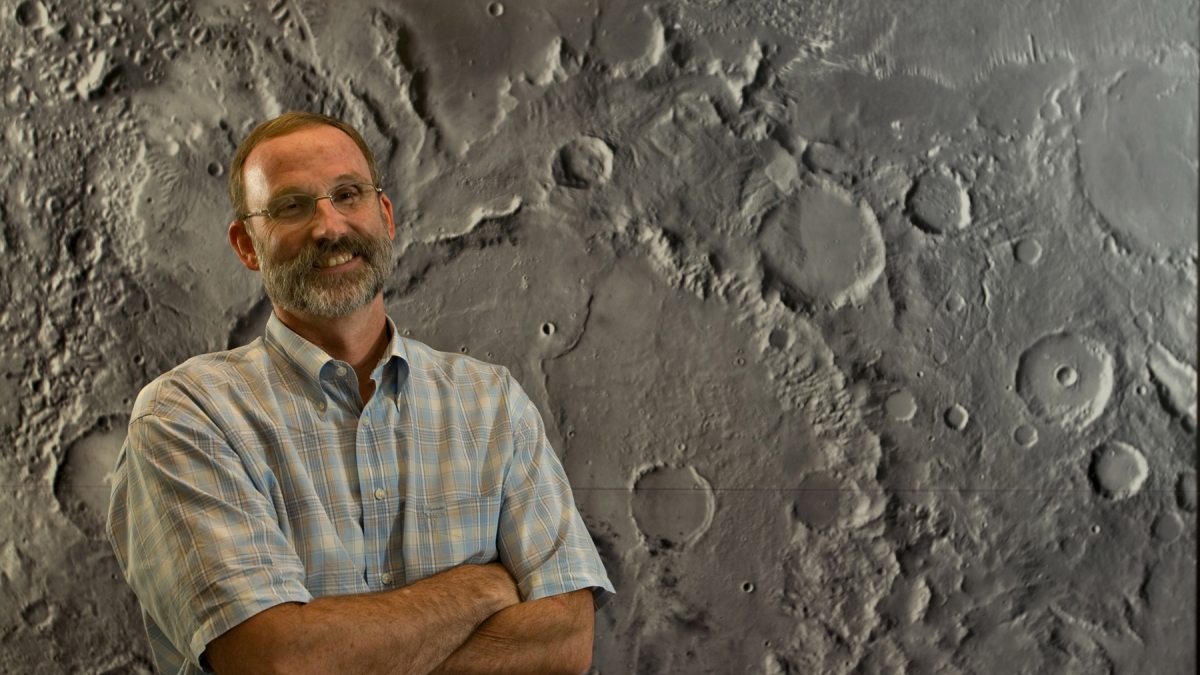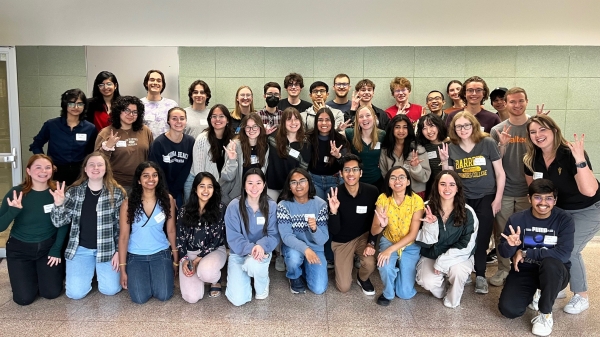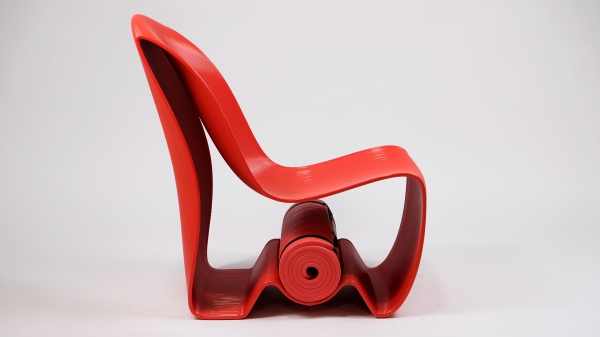ASU's Philip Christensen to co-chair National Academies of Sciences' new Decadal Survey
Survey will assess key scientific questions in planetary science and astrobiology

Regents Professor Philip Christensen of ASU's School of Earth and Space Exploration. In the background is a photo-mosaic of Gusev Crater on Mars.
Photo by Tom Story/ASU
The National Academies of Sciences, Engineering, and Medicine announced today that Arizona State University Professor Philip Christensen has been selected to co-chair the newly launched 2023-2032 Decadal Survey on Planetary Science and Astrobiology.
Christensen, who is a Regents Professor and the Ed and Helen Korrick Professor at the School of Earth and Space Exploration, has been at ASU since 1981 and has long focused his research on Mars, where his work has explored the nature and conditions of the rocks and sediments on its surface, as well as the dynamics of its atmosphere.
The Planetary Science and Astrobiology Decadal Survey, which Christensen will co-chair with Robin Canup of the Southwest Research Institute, will assess key scientific questions in planetary science and astrobiology, identify priority medium- and large-class missions and other initiatives, and present a comprehensive research strategy for the 2023-2032 timeframe.
"This decadal survey will guide our nation’s priorities and strategies in the exploration of the solar system for the next decade,” said Meenakshi Wadhwa, director of the School of Earth and Space Exploration. “I am proud that Professor Christensen, who is a leading figure in the planetary sciences, will be co-chairing this significant effort.”
Christensen will bring his vast experience in planetary exploration to the decadal survey. He has built six science instruments that have flown on NASA’s Mars Observer, Mars Global Surveyor, Mars Odyssey, Mars Exploration Rovers and OSIRIS-REx missions.
He has also recently completed developing an infrared instrument for the UAE’s Hope Mars mission, which launches this July, and is developing instruments for NASA’s Europa Clipper and Lucy Discovery missions.
In addition to his research, Christensen has developed over the past 20 years an extensive K-12 education and outreach program to bring the excitement of science and exploration into the classroom.
"I’m very honored to have been asked to co-chair this committee,” Christensen said. “The decadal survey is an excellent opportunity for the science community to help set NASA’s priorities for the next 10 years, and I’m excited to get the opportunity to contribute to this process.”
Christensen is a fellow of the American Geophysical Union and the Geological Society of America and received the AGU’s Whipple Award in 2018, the GSA’s G.K. Gilbert Award in 2008, NASA’s Public Service Medal in 2005 and NASA’s Exceptional Scientific Achievement Medal in 2003.
More Science and technology

Record number of ASU students selected for prestigious DAAD-RISE program
The Lorraine Frank Office of National Scholarships Advisement has announced that a record-high 34 Arizona State University…

ASU study identifies sex-based differences in physical aggression
Males are often more physically aggressive than females, whether it involves a school playground fight or assaulting another…

Industrial engineers develop new AI to elevate 3D printing
In the future imagined by Feng Ju, interior designers will have artificial intelligence, or AI, tools to create everything from…